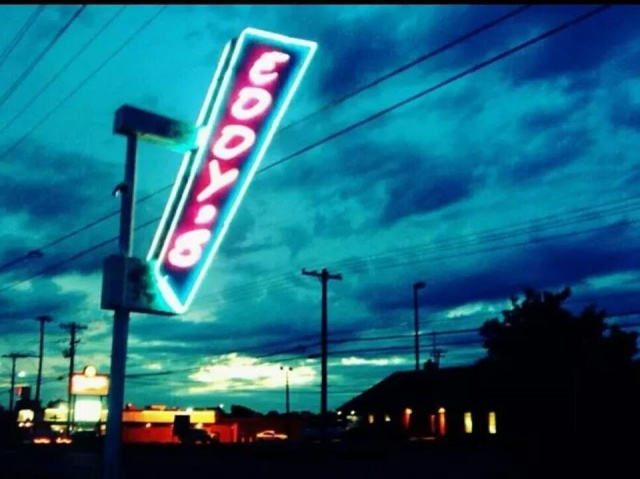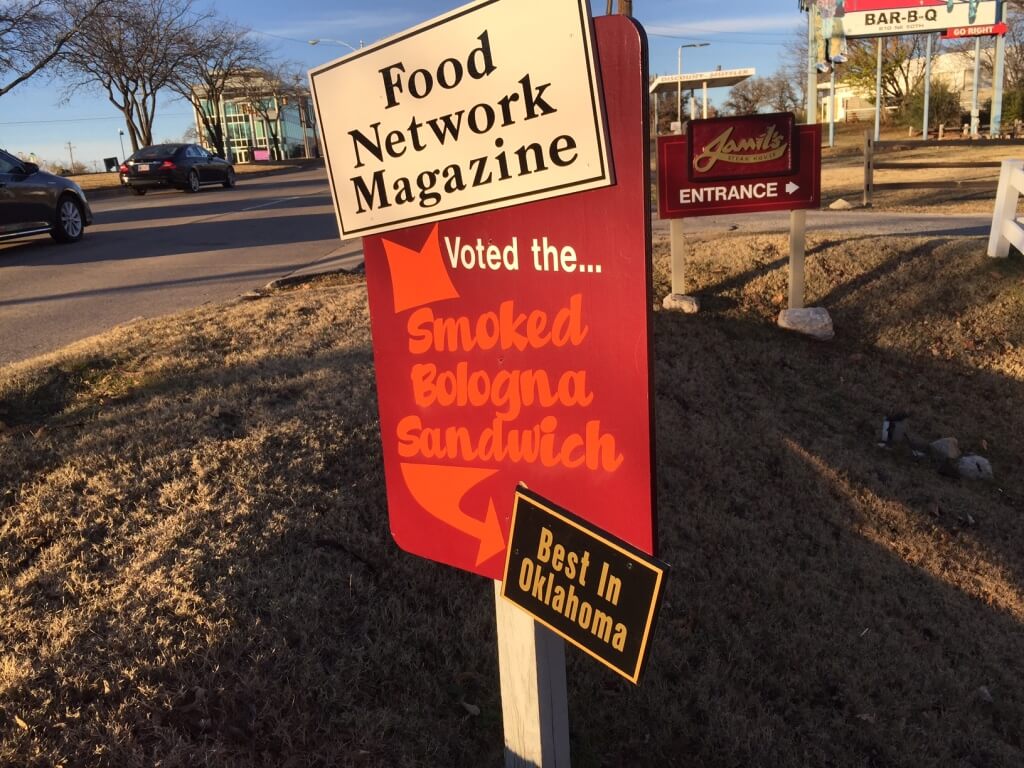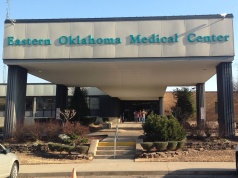

Only at an official Okie-style Lebanese steakhouse can a patron get hummus, tabouli and barbecued bologna in the same meal.
Over the years, several family-owned Lebanese steakhouses have sprung up in Oklahoma, featuring the traditional dishes of the owners’ homeland matched with smoked BBQ and a mixed grill. This exclusive-to-Oklahoma culinary phenomenon often goes unnoticed by a casual observer of the state’s culture.
“It’s the combination connection,” said Edmond Slyman, owner of Freddies Steakhouse in Sapulpa, as he was discussing the unique pairing of steaks and barbecued bologna with Lebanese favorites. “It’s just different.”
The menus are simple and to the point, with filets, rib-eyes and New York strips. Several of the steakhouses serve meals with hors d’oeuvres of hummus, tabouli, cabbage rolls, BBQ ribs and baloney.
In all, seven steakhouses with ties to Lebanese families still operate throughout the state. The family-owned steakhouses are so ubiquitous in Tulsa that they have blended into the landscape. To appreciate their charm, the situation requires a step back to examine how original the Lebanese steakhouse is to Oklahoma.
History
The Lebanese steakhouse model is a decidedly old-school affair.
“My grandfather and grandmother came over together,” said Eddy Elias Jr., owner of Eddy’s Steakhouse in Tulsa, talking about his ancestors and other Lebanese-Syrians coming to Oklahoma at the turn of the century. “Most of those Lebanese and Syrian families came over together.”
A dish by any other name …
Jamil’s Steakhouse (Tulsa)
Eddy’s Steakhouse (Tulsa)tabouleh
hummusFreddie’s (Sapulpa)
Joesph’s (Drumright)tabouly
houmusFreddie’s Steakhouse (Manford)
tabolie
houmusFreddie Paul’s Steakhouse (Stillwater)
Jamil’s Steakhouse (Oklahoma City)tabouli
The Oklahoma Historical Society notes that Lebanese-Syrians have been in the area since before statehood. Many of these immigrants worked the oil fields, some were peddlers following the latest boom, and others were merchants with shops in the growing towns of the Indian Territory. A large concentration of Lebanese-Syrians settled in the Bristow area of Creek County. The town hosts a yearly tabouli festival and a quiet local cemetery is filled with names such as Naife, Saied, Hammra and Shadid.
“They all sort of migrated to Bristow, Drumright, and I guess a lot in Skiatook, but seems like most of them came to Bristow,” said Elias Jr.
Many of the families who ended up owning steakhouses are intertwined from the old days when their parents and grandparents first came to Oklahoma. There is an especially strong Bristow connection between the Elias family — who own Jamil’s and Eddy’s in Tulsa — and Slyman of Freddie’s of Sapulpa.

“Edmond (Slyman) worked for my Uncle Jim for a long time,” Elias Jr. said. “Our families are very close friends, we’re sort of second cousins. We’ve all been good friends for a long time.”
A Facebook post Sunday by a group in Tulsa said Eddy’s would be closing sometime in 2016, which Elias Jr. confirmed to NonDoc on Monday.
The Elias family also started the Jamil’s Steakhouse in Oklahoma City which sits on Lincoln Boulevard just more than a mile north of the State Capitol.
Freddie’s Steakhouse
Slyman was at the center of the development of the Lebanese steakhouse model in Oklahoma. His tabouli recipe is famous in Creek County, and he was one of the founders of the tabouli festival. From Bristow, he went to the University of Central Oklahoma and, as a student, worked in the kitchen at Jamil’s Steakhouse back in Tulsa.
In college, Slyman said his wife, Sherri, would drop him off at the edge of the Turner Turnpike in Oklahoma City, and he would hitchhike back to Tulsa for work.
“Every Saturday morning for two years, she would take me to the end of the turnpike and I’d hitchhike back (to Tulsa) to cook for $20,” Slyman said. “It got to the point where cars, people, would be waiting on me at 8 o’clock in the morning, because they knew what I was doing.”
He also helped the original owner of Freddie’s set up shop in a converted grocery store in Drumright. When Tyrone Elias opened the Jamil’s in Oklahoma City in 1964, Slyman was on hand to help out in the kitchen there as well. At Jamil’s in Tulsa, Slyman got to know Pierre Saab, who was instrumental in the creation of the Oklahoma Lebanese steakhouse.
Saab ran a nightclub, not a steakhouse, at 27th Street and Harvard in Tulsa, but he was the first in the area to offer the hor d’oeuvres of hummus, tabouli and cabbage rolls. Pierre’s was opened in the early 1950s and hosted national touring acts such as Ella Fitzgerald, the Ink Spots and other jazz bands, Slyman said.
“He was way ahead of his time and a very debonair Lebanese person” said Slyman.
Pierre’s was forced to close in the mid 1950s, but he went to work with the Elias family and served as the maître’d for many years at Jamil’s. The fact that both Slyman and Saab helped out with the early days of Jamil’s Steakhouse illustrates the closeness of the Lebanese community in Oklahoma.
“Edmond Slyman taught me how to cook a steak,” Eddy Elias Jr. said emphatically, reminiscing on his time working at his uncle Jamil’s before his father opened up Eddy’s Steakhouse. “Everyone thinks it’s the other way around.”
Slyman recalls helping out the founder of Freddie’s in Drumright open up shop. The owner had mainly been involved in the grocery business and started selling steaks and traditional Lebanese foods out the back of the store. The demand for steaks got to be so high that the grocery store was closed and re-opened as a full-time restaurant. From engineers to roughnecks, the joint was packed with characters from the oil patch.
“When the oilys would come in, they’d bring their investors in, and they’d come by and get something to eat,” Slyman said. “That’s how we got acquainted with a lot of the Tulsa people.”















